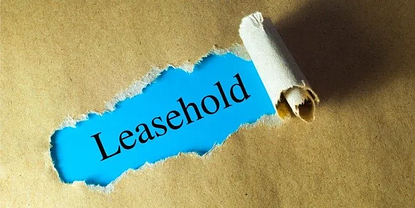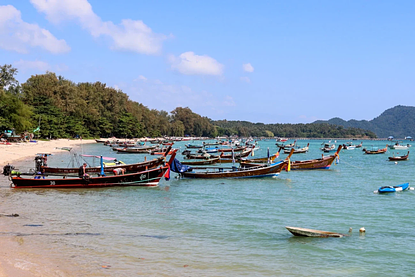Condominium Law. Buying apartments in a condominium

The demand for real estate in Thailand has always been quite high. And the priority has been given to apartment buildings for many years. In this article, we'll take a closer look at the legal regulation of condominiums and the Condominium Law.
In Thailand, a residential building always means a condominium. Literally a condominium, this is the joint ownership of a single object, most often a house. There are many reasons why condominiums in Thailand have come to the fore and remain among the best sellers for several decades, and they are all well-known:
- Diverse price range.
- More investment opportunities.
- A simple and understandable procedure for registering an apartment in ownership (the ability to register an apartment in freehold).
- Developed internal infrastructure of the condominium (pool / gym / kids club / restaurant).
- Large selection of apartments.
Thailand in this regard has no equal. Developers offer a huge number of investment programs.
The Condominium Act B.E. 2522, passed in 1979, greatly simplified the procedure for purchasing apartments for foreigners in Thailand, arousing unprecedented interest from both buyers and developers themselves. The amendments adopted in 2008 provoked a real boom among foreign citizens.
The law defines the Condominium as a multi-unit residential building with individual and common ownership. As a rule, this is a single complex of real estate, including a land plot, a residential building located on it, and other real estate objects. Separate premises intended for residential or other purposes are owned by citizens, and common property is in common shared ownership. On the territory of Thailand, there are two types of apartment buildings:
- Condominiums registered under the Condominium Act, with a title deed issued by the Land Department.
- Condominiums, without a license, not passed state registration.
If internally and externally, they are almost identical, then from a legal point of view, there is a big difference between them.
Unregistered condominiums do not undergo state registration, do not have a license, and thus do not fall under the Condominium Act. For buyers, this means a lack of legal protection. In such a condominium, a foreign citizen cannot purchase an apartment in full ownership. The only acceptable form of ownership in such condominiums is leasehold (long-term lease).
In fact, there are less than 1% of unregistered condominiums left today, and they are used as hotel-type houses. Therefore, in this article, we will be talking about registered condominiums with a license.
In a Registered Condominium, foreign citizens (individuals and legal entities) can register an apartment in full ownership. The law defines for such condominiums, the so-called "foreign quota", is 49%, which means that foreigners can register an apartment in full ownership, without any restrictions (freehold). And the "Thai Quota", where Thai citizens and Thai companies must own at least 51% of the living space of the condominium.
What does this mean in practice, if the total number of apartments in the condominium is 100, then 49 of them can be purchased by foreign citizens and registered in full ownership, and 51 apartments must be registered to Thai citizens. This does not mean that if the apartments in the "foreign quota" run out, you will not be able to purchase an apartment in this condominium. You can always do this by registering an apartment for a long-term lease (leasehold) from the "Thai quota".
The procedure for buying and registering an apartment in a condominium is quite standard, but from the legal side of the transaction, difficulties may arise, plus Thai law has its own peculiarities, therefore, in the case of purchasing real estate abroad, it is better to turn to professional staff who can provide you with qualified legal assistance. So that buying a property in Phuket becomes a dream come true for you, without creating unnecessary problems.
Basic moments:
Any citizen who decides to purchase an apartment in a condominium in full ownership, according to Article 19 of the Condominium Law, must legally stay in Thailand (having a valid visa, this can be any visa).
And when buying real estate, a foreign currency transfer (50,000 USD or higher) to Thailand must be documented and supported by a special form (FET form). You will also need this document if you want to withdraw money from Thailand in the future.
The FET form (Thor Tor 3 / Thor Tor 3) is an official document prepared in accordance with the requirements of the Central Bank of Thailand, which serves as a confirmation of the exchange of foreign currency for Thai Baht. The document also serves as proof of the fact of legal transfer/import of foreign currency into the territory of Thailand. This form is issued by an authorized financial institution (bank) in Thailand that conducts foreign exchange transactions.
The FET form must contain the following information:
- transfer amount in foreign currency
- transfer amount in Thai Baht
- name of the sender of funds
- beneficiary's name
- purpose of money transfer
After the registration procedure is completed and payments are made, you are given a package of documents:
Chanote
Each apartment in a registered condominium has a title deed. This certificate is issued by the Land Department. And it must necessarily contain the following information:
- location and positioning of the land plot., the area of the condominium land plot
- location, area, and plan of the apartment, indicating the width, length, and height
- size of the share of ownership of common property (number of voting shares)
- name and surname of the person who owns the apartment
- the signature, title, and seal of the competent official
House Book (Ta Bien Baan)
This is a certificate of state registration of apartments and all persons living in them. This document is issued by the local municipality. This document indicates the location (address) of the apartment and the persons for whom this address is the official residence address are registered. If a foreigner does not reside in Thailand on a permanent basis, then such a book is not mandatory for him, since it is not an official certificate of ownership, but only confirms registration at the place of residence.
!!!Registration of the transfer of ownership of an apartment or amending the certificate of ownership always takes place at the Office of the Land Department.
An important point that you should not forget about and initially lay in your budget is taxes and additional fees. There are no annual property taxes in Thailand. There are only one-time fees when registering an object with the land department, as a rule, this is 2-3% of the value of the object.
!Do not forget that taxation will be different when buying in the primary and secondary markets.
You can get a free selection of real estate by clicking on the link.


